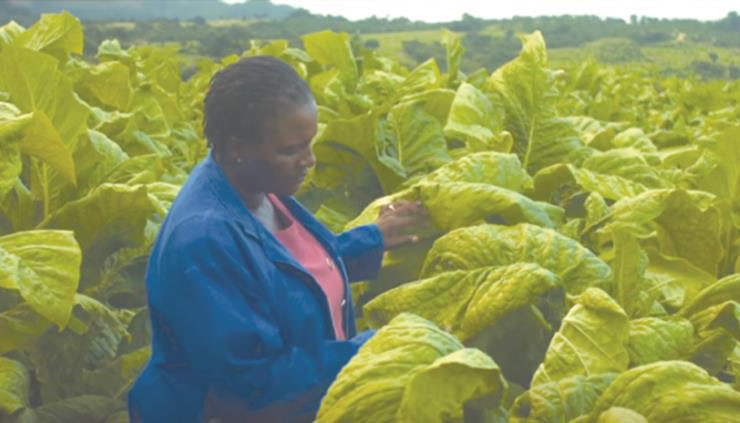Source: Poor rains choke tobacco production | Sunday Mail (Business)

Martin Kadzere
Zimbabwe expects production of its largest single foreign currency earner tobacco to fall this season as erratic rains in the eastern parts of the country affected output.
The country produced a record 253 million kilogrammes of the golden leaf last year, but poor rains badly affected the crop in most parts of Manicaland and Masholaland East provinces the Tobacco Industry and Marketing Board chief executive officer Dr Andrew Matibiri told The Sunday Mail Business in an interview on Thursday.
Where climatic conditions were favourable, output and quality would be “much better,” he said.
“The situation is so dire in Manicaland and Mashonaland East Provinces where the rainfall patterns were not so good and as a result, we won’t get much as last year’s record crop but we will be over 200 million kg,” Dr Matibiri said.
The TIMB was finalising a crop assessment to give the estimated tobacco output for this year.
Tobacco is largely grown by small scale farmers in Zimbabwe, who are mostly financed by private companies as they lack collateral to borrow money from banks. President of Zimbabwe Farmers Union Mr Paul Zakaria said given that the affected provinces were traditionally among top producers of tobacco, output would drop.
“The late onset of the rains, compounded by prolonged dry spells during the season, is really going to affect production,” said Mr Zakaria in an interview on Friday.
“We are certainly not going to surpass the 253 million kilogrammes we achieved last year.”
The Zimbabwe Tobacco Association is expected to hold a council meeting early this week to get feedback from its members on the impact of poor rains on production. About 80 percent of tobacco is grown under contract schemes, according to the TIMB.
Registered farmers increased by 44 percent to 170 169 farmers from 118 142 for last year.
Of the 170 842 registered growers, 41 552 are new. Farmers last year delivered a record 253 million kilogrammes of flue cured tobacco worth $737,2 million. Dr Matibiri said the TIMB is still consulting stakeholders on when the next season would start.
This season, tobacco farmers will retain 50 percent of their earnings in hard currency, from 30 percent the Reserve Bank of Zimbabwe initially announced in the Monetary Policy Statement. Central bank governor, Dr John Mangudya, said the move was meant to stimulate tobacco production and earn the country the badly needed forex.
The Reserve Bank also extended the period—from 30 days to 90 days—which tobacco farmers could keep their hard currency in their accounts before compulsory conversion to local currency at the prevailing exchange rate.
“This will actually give our farmers more time to plan how they want to use their money,” said Mr Zakaria.
Dr Mangudya also told our sister paper, Business Weekly on Thursday the 30-day period was not cast in iron as retained earnings could be kept longer in exceptional cases where such need arises to avoid choking companys’ operations.
Mr Zakaria has urged farmers to book their sale before delivering produce to avoid chaos at the marketing floors. “What we need is order at the floors,” he said.
“We have had farmers staying for longer periods at the floors because they would have not made pre-bookings. This will cause unnecessary congestion and chaos.
“Middleman have also taken advantage and this resulted in farmers being fleeced.
Apart from tobacco, other main sources of Zimbabwe’s foreign currency are gold and cotton.
The post Poor rains choke tobacco production appeared first on Zimbabwe Situation.